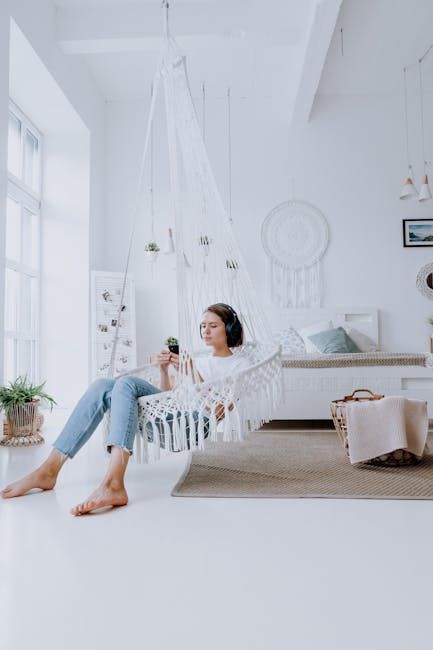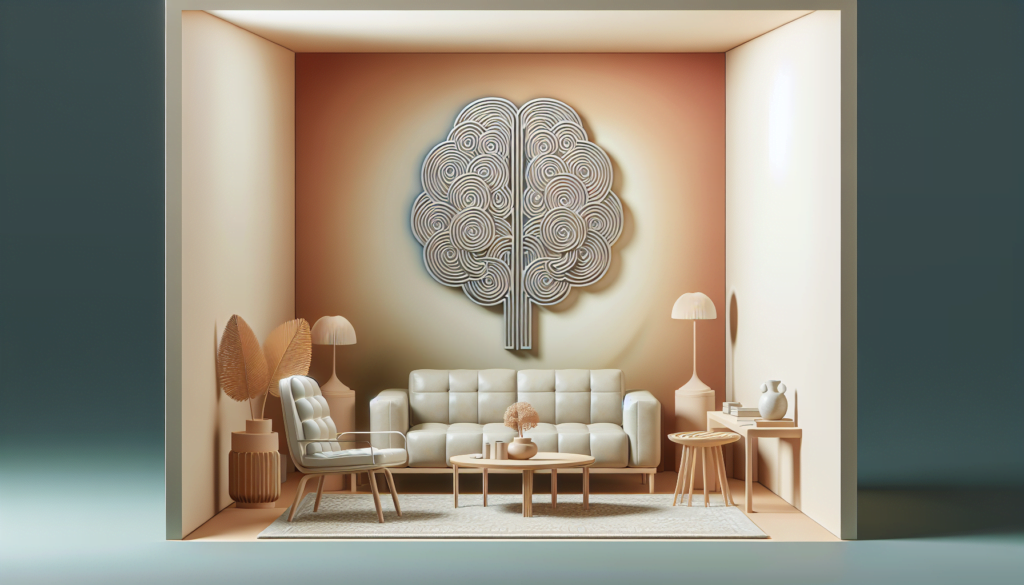Minimalism, a lifestyle choice that emphasizes simplicity and the elimination of excess, can have profound psychological benefits. By reducing clutter, both physical and mental, minimalism can lead to increased focus, improved mood, and a more fulfilling life. But why should you keep reading? Because understanding the psychological benefits of minimalism can help you make informed decisions about your lifestyle and potentially improve your mental health.
Key Takeaways
- Minimalism can enhance mental clarity and focus.
- It can improve emotional well-being.
- Minimalism promotes financial health.
- It encourages living a value-aligned life.
- Minimalism can lead to freedom and clarity.
- It can enhance long-term happiness.
- Minimalism reduces stress and anxiety.
- It encourages mindfulness and presence.
- Understanding and learning about minimalism can lead to improved mental health.
Introduction to Minimalism
Definition of Minimalism
Minimalism is a lifestyle that involves living with less. This means fewer physical possessions, less clutter, and less stress. It’s about focusing on what’s truly important in life and letting go of the rest.
Overview of Psychological Benefits
The psychological benefits of minimalism are numerous. They include enhanced mental clarity, improved emotional well-being, financial health, and living a value-aligned life. These benefits are backed by various studies and research in the field of psychology.

Enhancing Mental Clarity and Focus
Decluttering the Mind
Reduces anxiety and stress
By reducing physical clutter, minimalism can help reduce mental clutter as well. This can lead to decreased anxiety and stress, as our minds are not constantly bombarded with unnecessary information.

Allows for clearer thinking
When our minds are not cluttered with unnecessary thoughts and worries, we can think more clearly. This can lead to better decision-making and problem-solving abilities.
Boosting Productivity
Eliminates unnecessary distractions
Minimalism can help eliminate unnecessary distractions in our environment, allowing us to focus on our tasks and goals. This can lead to increased productivity and efficiency.

Enables better concentration on tasks and goals
By eliminating distractions, minimalism allows us to better concentrate on our tasks and goals. This can lead to improved performance and results.
Improving Emotional Well-being
Reducing Feelings of Loneliness
Fosters deeper connections with oneself and others
Minimalism encourages us to focus on our relationships rather than our possessions. This can lead to deeper connections with ourselves and others, reducing feelings of loneliness.

Encourages community involvement and social activities
By focusing less on material possessions, we can spend more time engaging in community involvement and social activities. This can lead to improved emotional well-being.
Enhancing Mood and Contentment
Reduces clutter and distractions in the environment
A clutter-free environment can lead to improved mood and contentment. This is because clutter can be distracting and stressful, while a clean and organized environment can be calming and soothing.

Promotes a peaceful and content state of mind
By reducing clutter and distractions, minimalism can promote a peaceful and content state of mind. This can lead to improved emotional well-being.
Promoting Financial Health
Encouraging Financial Security
Prioritizes spending on essentials and savings
Minimalism encourages us to prioritize spending on essentials and savings, rather than unnecessary items. This can lead to improved financial security.

Reduces expenditure on superfluous items
By focusing on what’s truly important, minimalism can help us reduce expenditure on superfluous items. This can lead to financial savings and improved financial health.
Living a Value-Aligned Life
Focusing on What Truly Matters
Promotes living life aligned with personal values
Minimalism encourages us to live life aligned with our personal values. This means focusing on what’s truly important to us, rather than what society tells us is important.

Reduces the desire for constant consumption
By focusing on what’s truly important, minimalism can reduce our desire for constant consumption. This can lead to a more fulfilling and satisfying life.
Appreciating Simplicity
Encourages contentment with what one has
Minimalism encourages us to be content with what we have, rather than constantly striving for more. This can lead to increased happiness and satisfaction.

Recognizes the beauty of simplicity
Minimalism recognizes the beauty of simplicity. It encourages us to appreciate the simple things in life, rather than constantly striving for more.
Achieving Freedom and Clarity
Benefits of Extreme Minimalism
Profound sense of freedom
Extreme minimalism can lead to a profound sense of freedom. By letting go of most of our material possessions, we can experience a sense of liberation and freedom that is rarely found in our consumer-driven society.

Clarity by letting go of most material possessions
By letting go of most of our material possessions, we can achieve clarity. This can lead to improved mental health and well-being.
Enhancing Long-Term Happiness
Shifting Perspectives
Values experiences and relationships over possessions
Minimalism values experiences and relationships over possessions. This shift in perspective can lead to long-term happiness and satisfaction.

Leads to long-term happiness and satisfaction
By valuing experiences and relationships over possessions, minimalism can lead to long-term happiness and satisfaction.
Reducing Stress and Anxiety
Simplifying Life
Meets basic psychological needs
Minimalism can help meet our basic psychological needs. By reducing clutter and distractions, we can focus on what’s truly important, leading to improved mental health and happiness.

Leads to improved mental health and happiness
By simplifying our lives, minimalism can lead to improved mental health and happiness. This is because it allows us to focus on what’s truly important, rather than being overwhelmed by clutter and distractions.
Encouraging Mindfulness and Presence
Living More Intentionally
Increases awareness and appreciation of the moment
Minimalism encourages us to live more intentionally. This means being more aware and appreciative of the present moment, rather than constantly worrying about the past or future.
Promotes mindfulness and presence
By encouraging us to live more intentionally, minimalism promotes mindfulness and presence. This can lead to improved mental health and well-being.
Understanding and Learning
Identifying Psychological Patterns
Recognizes the impact of clutter on mental health
Understanding and learning about minimalism can help us recognize the impact of clutter on our mental health. This can lead to improved mental health and well-being.

Recognizing Neurochemical Effects
Shows how minimalism can improve mood and reduce stress
Understanding and learning about minimalism can help us recognize its neurochemical effects. For example, it can show us how minimalism can improve mood and reduce stress. This can lead to improved mental health and well-being.
In conclusion, minimalism offers a plethora of psychological benefits. From enhancing mental clarity and focus to improving emotional well-being, promoting financial health, and encouraging a value-aligned life, the benefits are numerous and profound. So, why not consider embracing minimalism and reaping these benefits for yourself?
For more insights on the benefits of a clutter-free living space, check out our blog post on the importance of maintaining a clean and clutter-free living space. If you’re interested in learning more about positive psychology and its role in promoting well-being, our post on positive psychology is a must-read. And for those seeking to incorporate mindfulness into their daily lives, our article on the significance of practicing mindfulness in our daily lives offers valuable insights.
Sources:
– Forbes
– LinkedIn
– Modern Minimalism
Discover the Calm: The Psychological Benefits of Minimalism FAQ
What is minimalism and how does it relate to psychology?
Minimalism is a lifestyle choice that emphasizes living with fewer possessions, focusing on what’s essential and finding value in simplicity. Psychologically, it’s linked to reducing stress and anxiety by decluttering one’s physical environment, which can lead to a clearer mind and a more focused life. This simplicity can help individuals prioritize their well-being and cultivate a sense of inner peace.
Can adopting minimalism improve mental health?
Yes, adopting minimalism can have a positive impact on mental health. By reducing clutter and distractions, individuals may experience lower levels of stress and anxiety. Minimalism encourages living in the moment and appreciating what you have, which can enhance mindfulness and overall life satisfaction. This lifestyle can lead to a more organized environment, which is known to reduce the mental load and promote a sense of calm.
How does minimalism affect stress and anxiety levels?
Minimalism can significantly reduce stress and anxiety levels by eliminating excess from one’s life. A cluttered environment can overwhelm the senses, leading to increased stress and difficulty concentrating. By simplifying one’s surroundings and lifestyle, minimalism helps in reducing the stimuli that contribute to stress and anxiety, fostering a more peaceful and relaxed state of mind.
Can minimalism help with depression?
While minimalism is not a cure for depression, it can be a helpful tool in managing some of its symptoms. A simplified lifestyle can lead to reduced feelings of overwhelm and help individuals focus on activities that bring joy and fulfillment. By minimizing distractions, one can allocate more time and energy towards self-care practices and hobbies that support mental health.
Does minimalism contribute to better focus and productivity?
Absolutely. Minimalism’s core principle of eliminating unnecessary distractions directly contributes to enhanced focus and productivity. A decluttered and organized space can minimize cognitive overload, making it easier to concentrate on tasks. This can lead to more efficient work and leisure time, as well as a greater sense of accomplishment.
How can minimalism improve relationships?
Minimalism can improve relationships by fostering more meaningful interactions and connections. By reducing the emphasis on material possessions, individuals can focus more on experiences and relationships. This lifestyle encourages spending quality time with loved ones, engaging in fulfilling activities together, rather than accumulating goods. It can lead to deeper, more authentic relationships.
Is minimalism beneficial for children?
Yes, minimalism can be very beneficial for children. It teaches them to value experiences over possessions and to appreciate what they have. A minimalist environment can encourage creativity and play, as children learn to make use of fewer toys or items in more imaginative ways. Additionally, a clutter-free space can help reduce distractions, supporting better focus and potentially improving academic performance.
How does one start practicing minimalism for psychological benefits?
Starting with minimalism involves a conscious decision to declutter and simplify your life. Begin by assessing your possessions and identifying what truly adds value to your life. Gradually declutter your space, removing items that don’t serve a purpose or bring joy. Embrace simplicity in your daily routines and focus on being present. It’s also helpful to practice gratitude and mindfulness as part of your minimalist lifestyle to enhance its psychological benefits.



